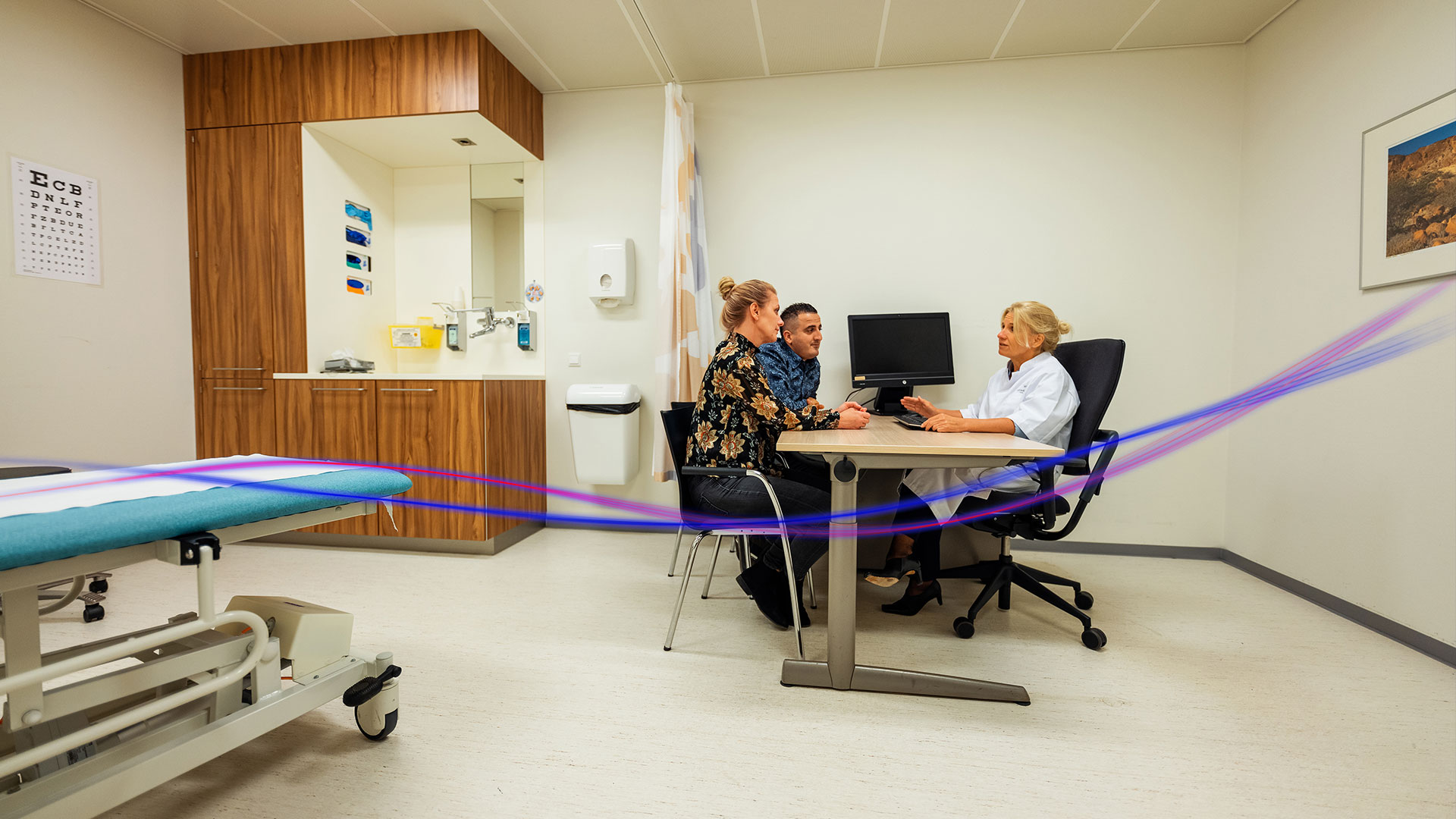
Share your data
If you are treated in a hospital, your data will be stored in a digital file. By recording and storing such data in a uniform manner, it can be used for the treatment of future patients. If you have given consent to use your data, you can withdraw any time.
Why is data sharing important?
Your data can be used for research that contributes to increase knowledge about cancer and/or its treatment, or to improve the care for future patients. Four examples:
Your experience is important
Patients who are to be treated would like to know the experience of already treated patients. You can help other patients by sharing your experience of the treatment and its impact.
Predicting the effectiveness of drugs
The more data about cancer treatments we have, the better we will be able to predict which groups of patients are The more cancer treatment data we have, the better we can predict which groups of patients are likely to benefit from a drug, and which will not. On average, the drugs efficacy is 30%. If we could increase that by better selection to 50% or 60%, it would make a huge difference. More patients will be prescribed a drug that actually work, and patients will be spared potentially expensive treatments that will not be effective.
Fewer complications and shorter hospitalizations for patients with colon cancer
Treating physicians want to know how effective their treatments are compared to those of other hospitals, and what they can do to improve outcome for their patients. After colon cancer specialists started registering and sharing their patients’ data, the number of complications after surgery decreased significantly, hospitalization period became shorter, and the overall treatment was less expensive.
Less invasive treatments for breast cancer
Oncologists are building a national registry for breast cancer that contains a wealth of data about their patients and treatments. The data revealed that some hospitals carry out more breast-conserving operations than others. It showed a significant difference in the number of patients who had to undergo a second operation after breast-conserving surgery (because the tumor had not been completely removed). Hospitals have analysed the data and compared each other’s results to identify what causes these differences. The outcome of the care for breast cancer patients has continued to improve.
What data is shared?
The hospital sends a sample of your blood and your tumor to Hartwig. We then carry out a complete DNA test to reveal the DNA profile of your tumor. With your permission, we will store this genetic data and other relevant data we receive from your hospital (such as your gender, age and information about the tumor) in our database.
How is your data protected?
Your data and the samples will be sent to Hartwig by the hospital in encrypted form whenever possible. All your data stored in the Hartwig Medical Database is also encrypted, so researchers who receive this data cannot link it to you.
The use of certain personal data from you is necessary for the linking of your data with other databases. This personal data will only be used by Hartwig to enable these links. Such links will be made in such a way that no personal data about you will be visible. This is possible because so-called pseudonyms are used. In this way we can ensure that your privacy is protected.
Please see our privacy statement at the bottom of this page for more information about us and how we handle your data and protect your privacy.
Who will use your data?
We grant access to the data to researchers for cancer research. Researchers are required to submit a comprehensive application which is thoroughly reviewed by a scientific and data access board. After a positive review access is only granted to the specific part of the database that is relevant for this application.
Your data may be shared with researchers in the Your data may be shared with researchers in the Netherlands and other countries of the European Union (EU). All EU countries have identical rules for data protection. Your data may also be shared with researchers outside the EU. In these counties the EU’s rules for protecting your personal data do not apply. If we share data with researchers outside the EU, we will take additional measures to provide a similar level of data protection as for the EU countries.
Hartwig Medical Foundation
Should we ever cease to operate, all encrypted data will be transferred to a third party that has the same objective and provides at least the same level of privacy protection and data security as Hartwig does.

The complete DNA test is an additional tool to help us discover the origin of the cancer in patients with CUP, often enabling us to identify this primary tumor. In addition, the test often reveals new options for targeted treatment.